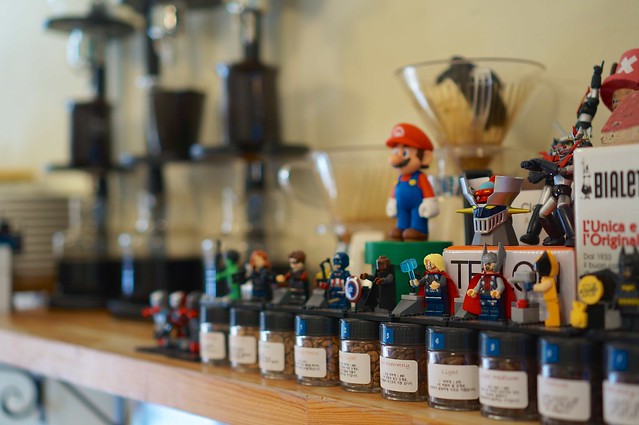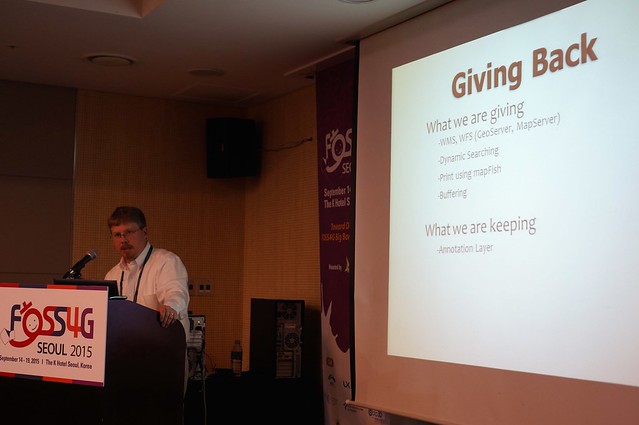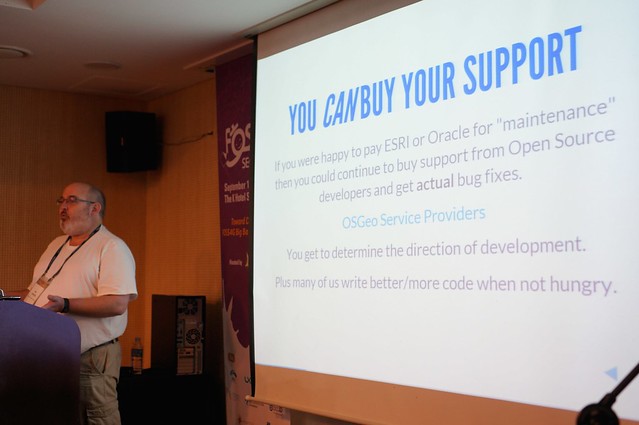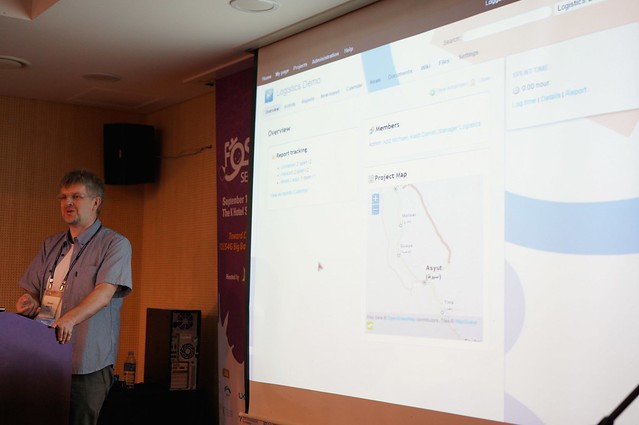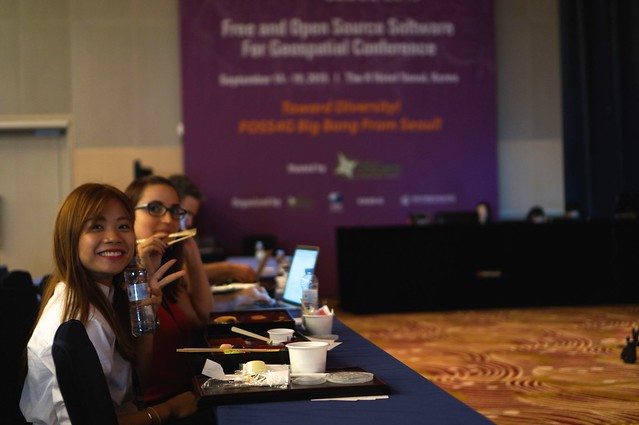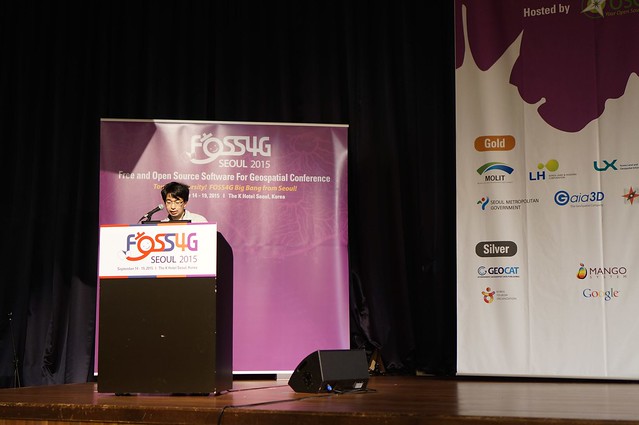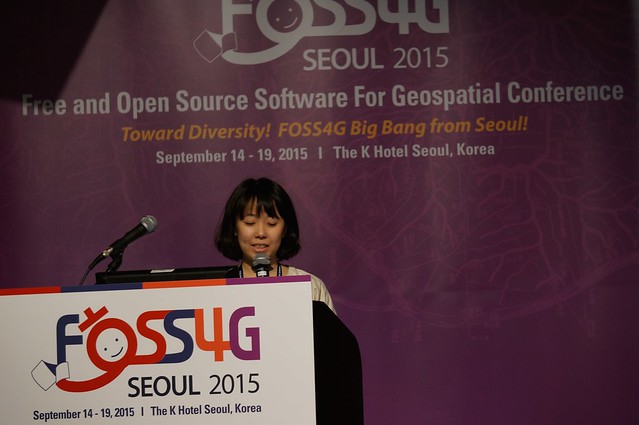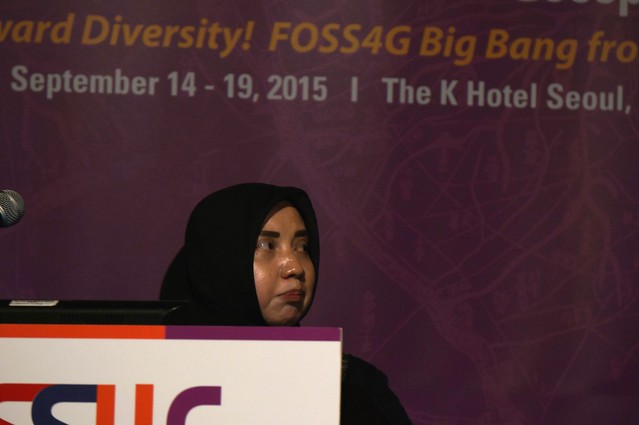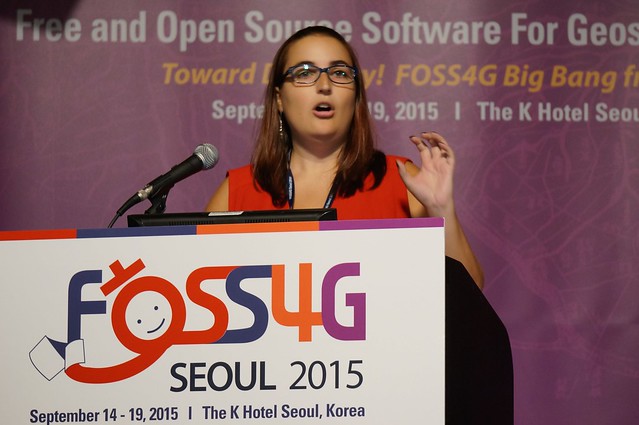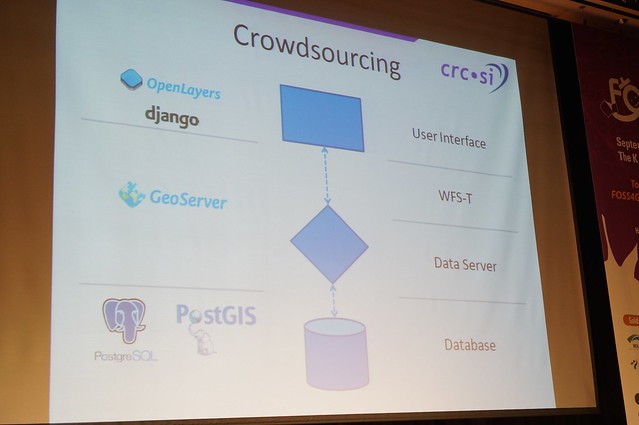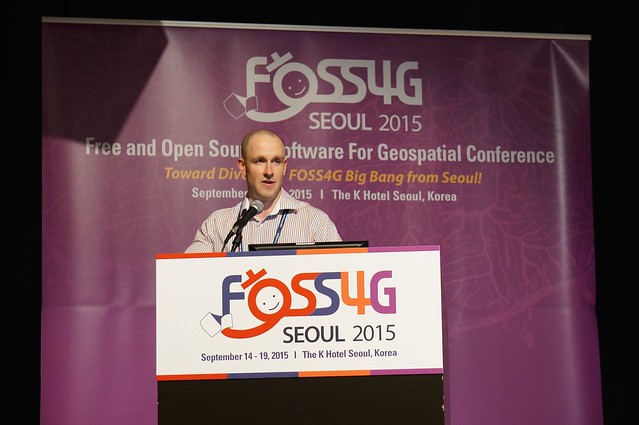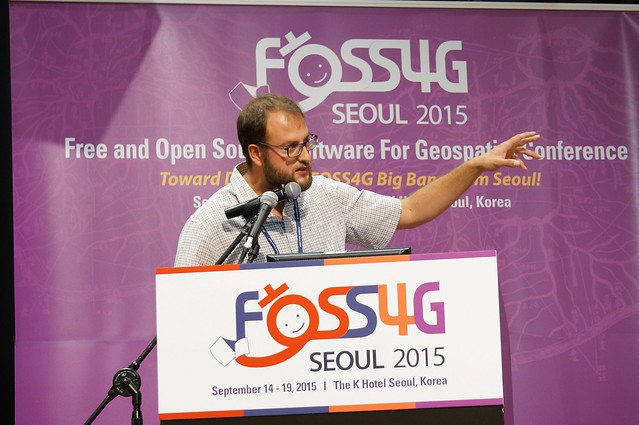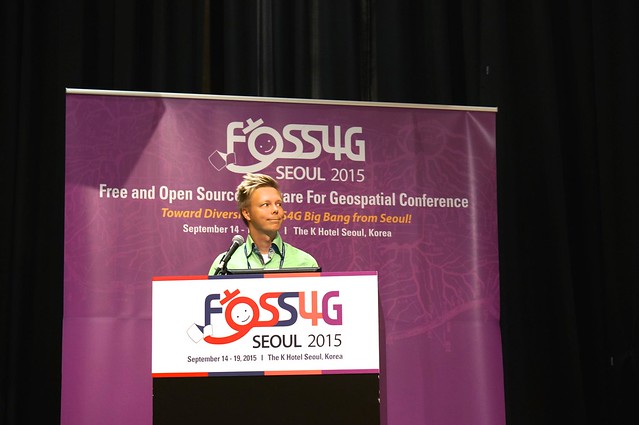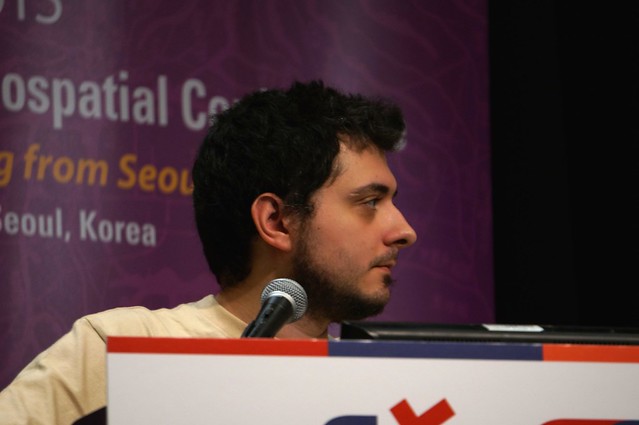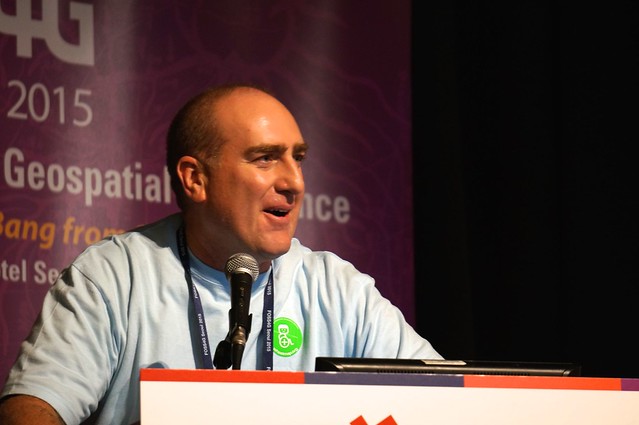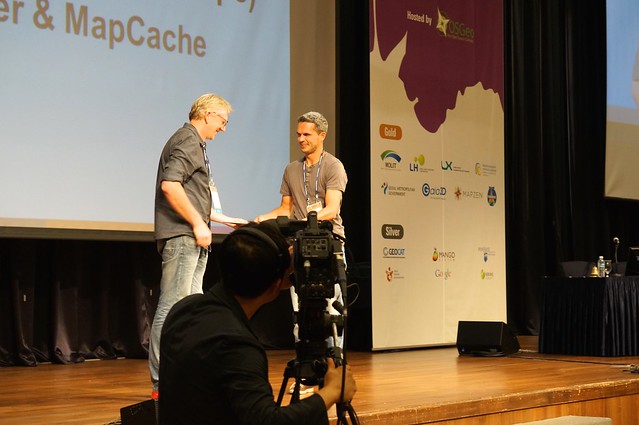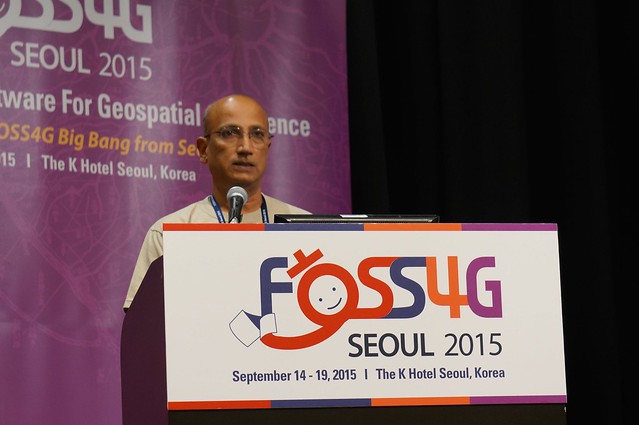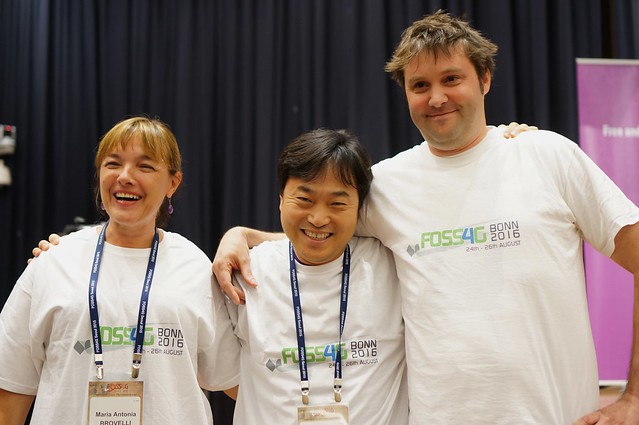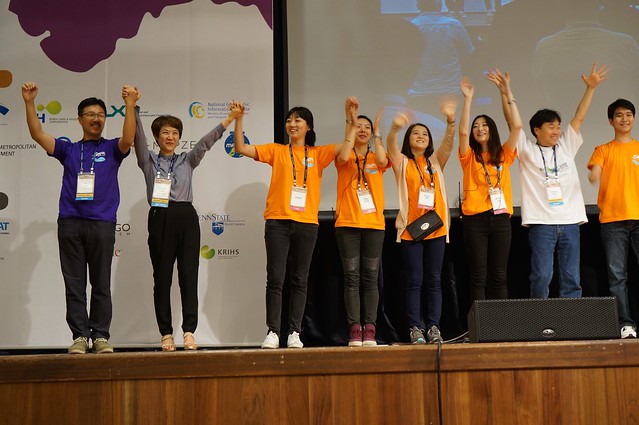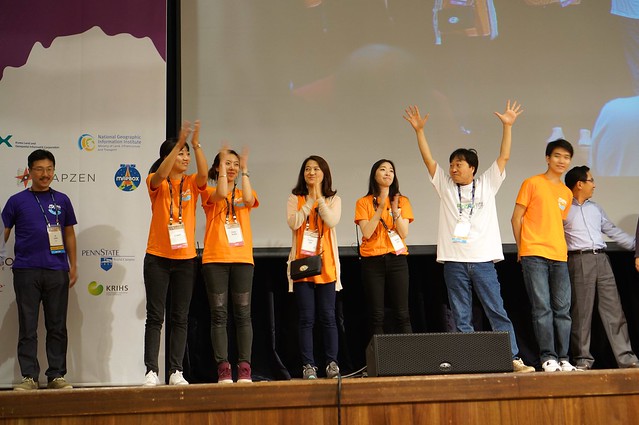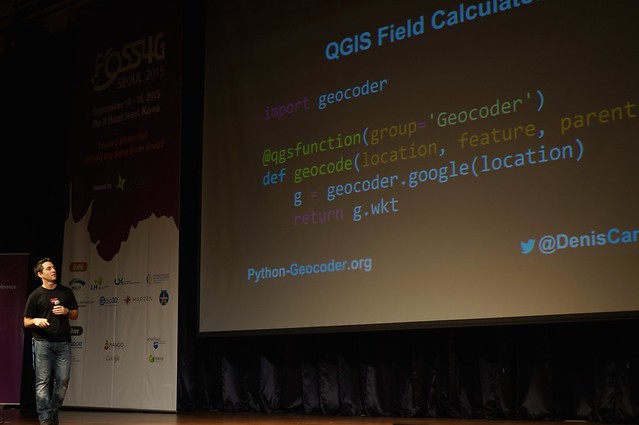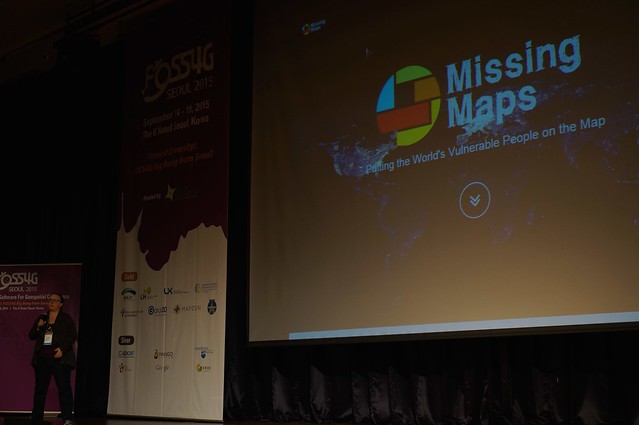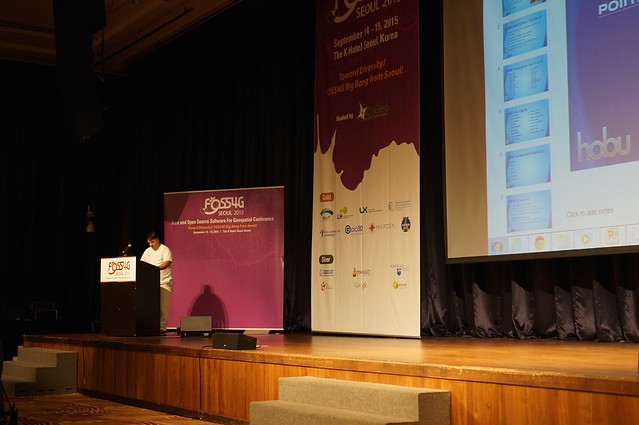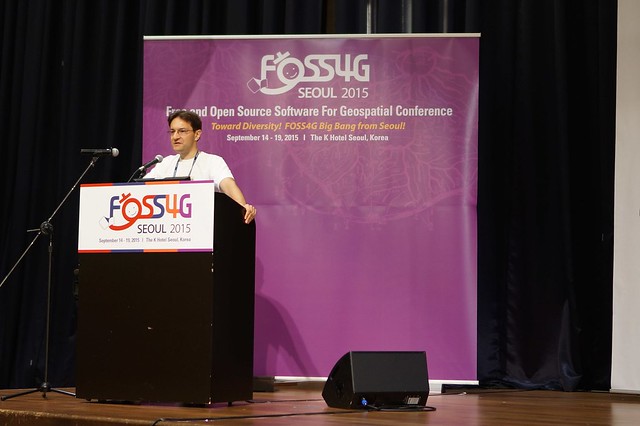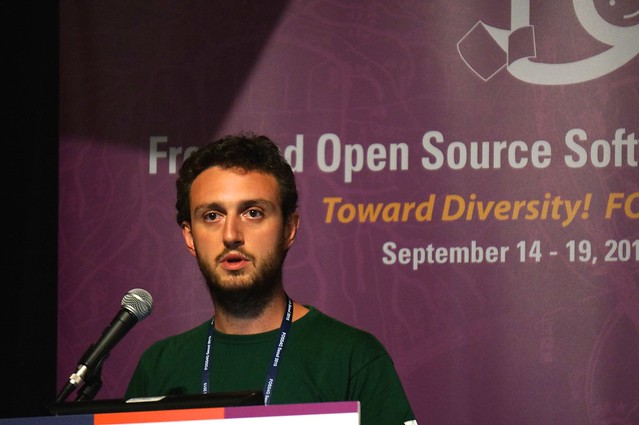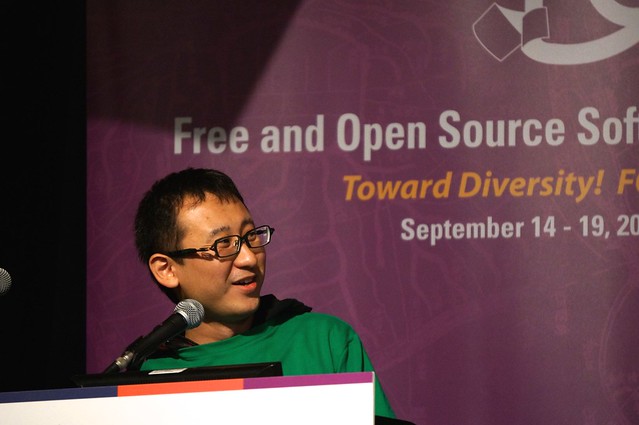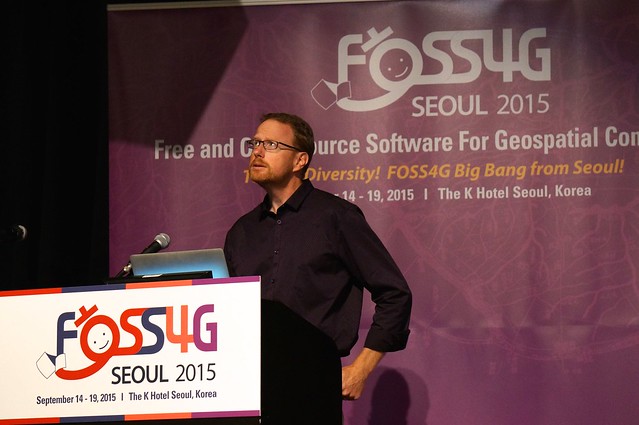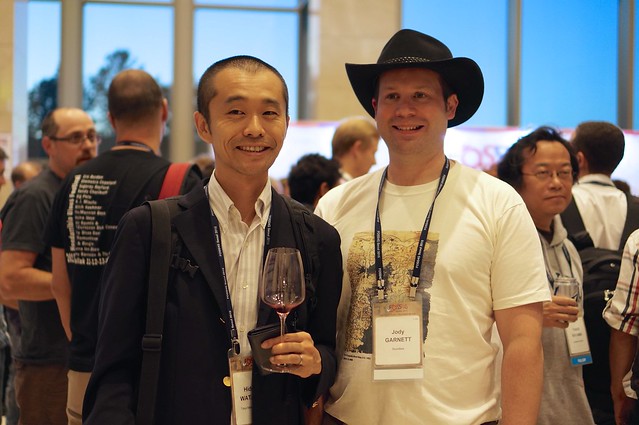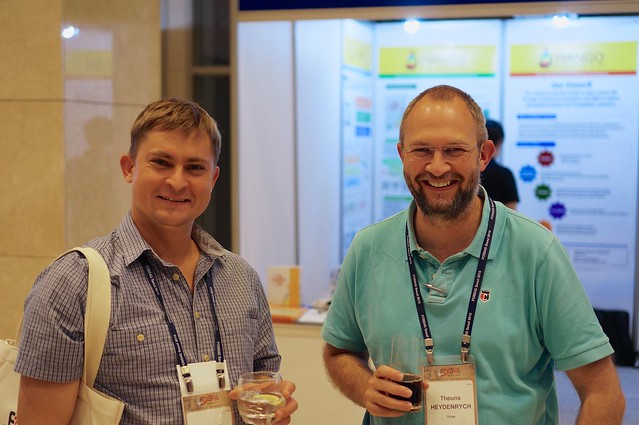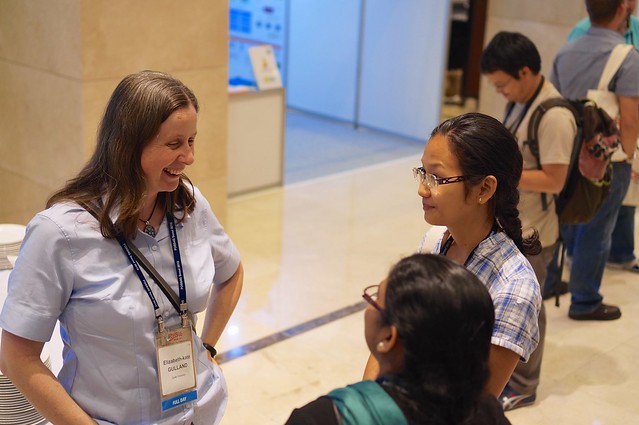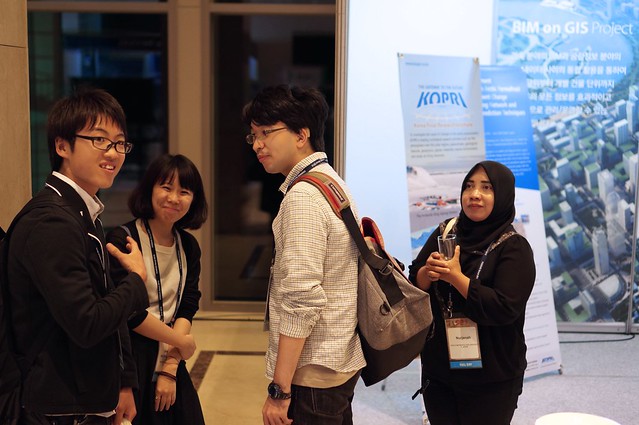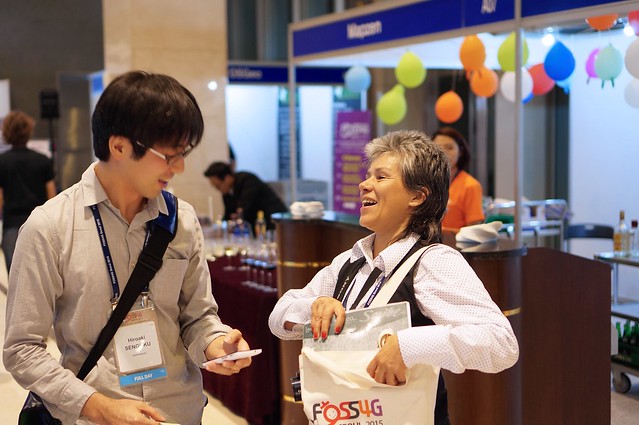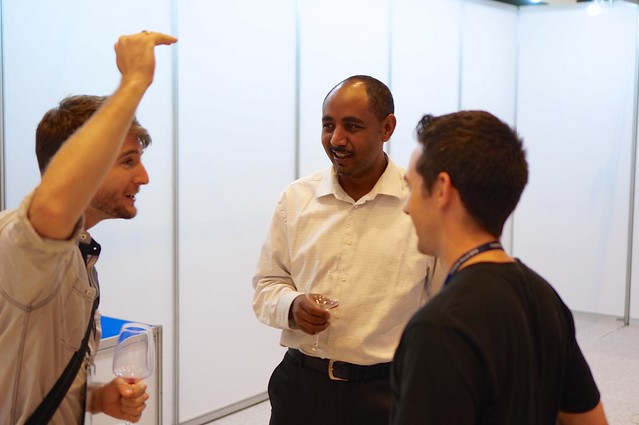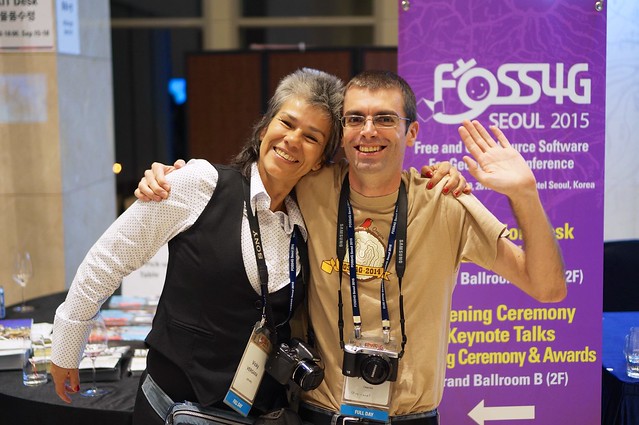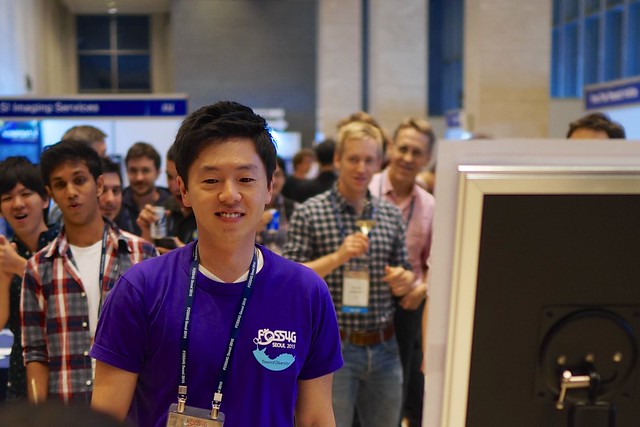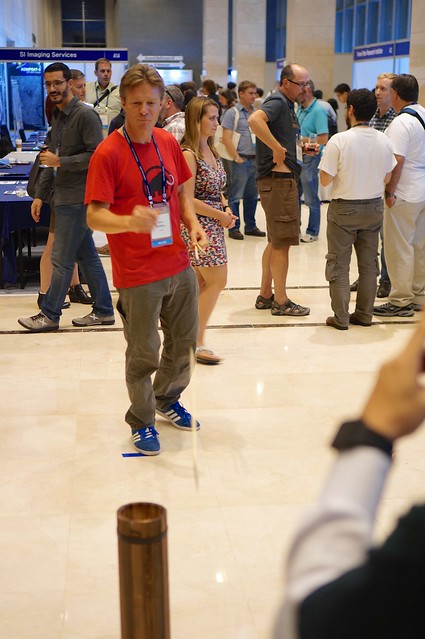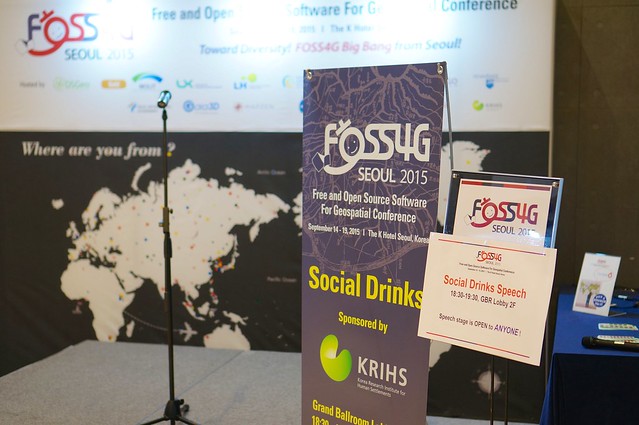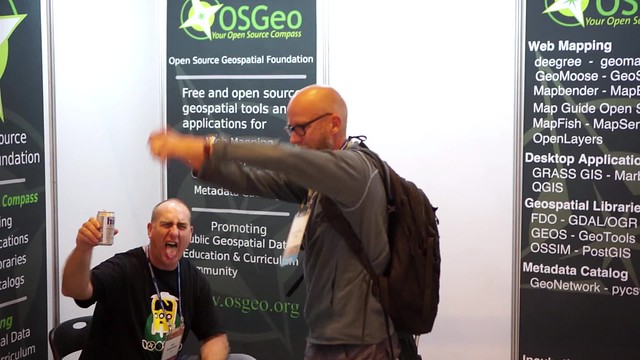The other annual event I have been pleased to take part in is the LocationTech Tour. The Tour takes the opposite approach, rather than bring community leads to a central location for a "big phat conference" it consists of a series of smaller events taking projects closer to new users. This is excellent for outreach and advocacy often setting a gruelling pace for those involved.
It should be noticed that this is a straight up outreach event featuring a mix of OSGeo and LocationTech (and other!) projects.
For 2015 the tour has already hit several cities, I will update this blog post for each one I am able to take part in.
- LocationTech Tour 2015 (Flickr Album)
LocationTech Tour Victoria
Last year the local GeoGeeks collaborated to set up a "GeoRabble Style" pub night (well within everyone's comfort zone). This year do to some quick organization with Paul Ramsey and Dr. Trisalyn Nelson from University of Victoria we were able to do two events: an evening at the "Stick Wicket" pub, and a day of workshops which managed to sell out.Featured presentations:
- Welcome (Jody) - a chance to introduce open source, open standards and open data
- Torque (Paul) - javascript space/time visualization library
- State of GeoServer (Jody)
- JTS Update (Travis) - looks like JTS 1.14 is finally here (at least on maven central)
- MapStory Uncovered (Travis) - the show case for GeoNode (a new OSGeo project)
- Composer Demo (Torben) - alternate user interface for GeoServer
Featured workshops:
- Introduction to GeoServer (Mike)
- Making Pretty Maps with CartoDB (Paul)
- Introduction to PostGIS (Paul)
- QGIS Introduction (Morgen)
- Introduction to GeoGig (Jody) - New workshop featuring QGIS plugin
In many cases this was a first-contact experience with open source spatial software, making this a great outreach activity.
 |
| Martin Providing an update on JTS 1.14 |
 |
| Travis exploring the next MapStory Platform |
 |
| Filled to Capacity for PostGIS workshop |
 |
| University of Victoria and the Next Generation of Spatial Professionals |


